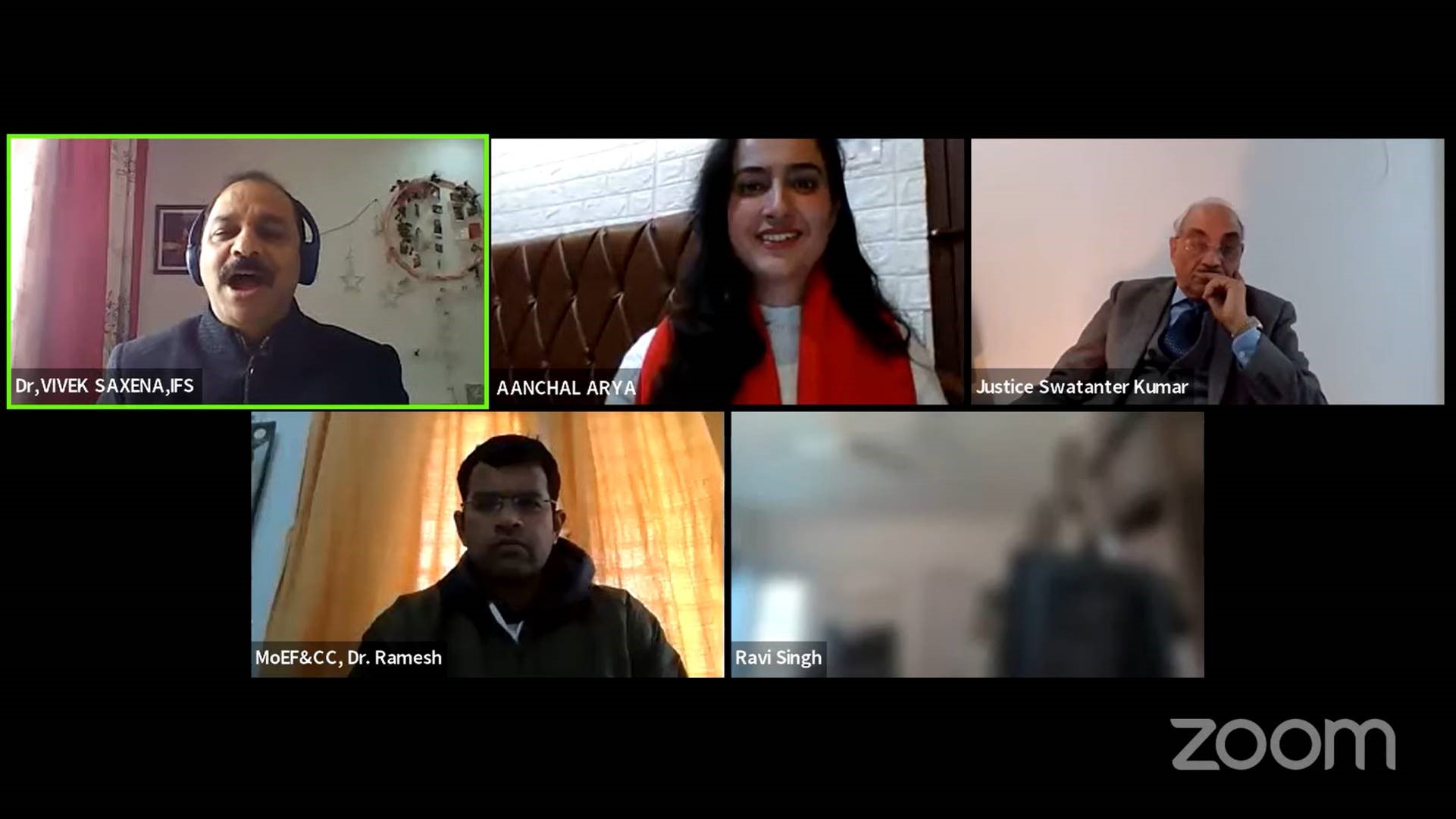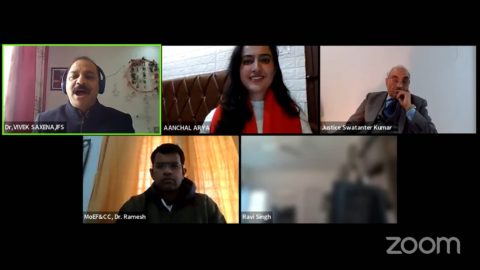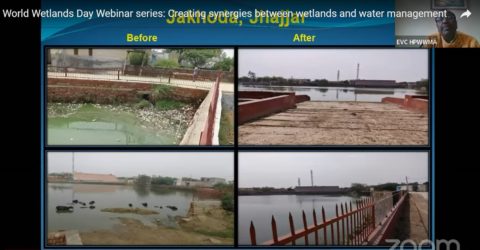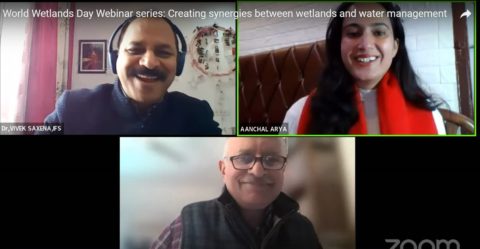
Considering wetlands as nature infrastructure solutions for bridging wetlands and water sectors
-
Wetland values, status and trends
New Delhi, February 05, 2022: World Wetlands Day, celebrated worldwide on February 2 to mark the day of adoption of the Ramsar Convention, is the backdrop of a wetlands webinar series organized by the Forest Department, Government of Haryana, the Ministry of Environment, Forest and Climate Change (MoEFCC), Government of India and Wetlands International South Asia. The fourth and the concluding session was organized on February 5, 2022, on the topic– “Creating synergies between wetlands and water management”.
Dr Vivek Saxena (Managing Director, Haryana Forest Development Corporation and the Convenor of the webinar series) introduced the topic, by highlighting the significant role of wetlands within the water and carbon cycles. He also walked the participants through the conclusions of the previous webinars, and the World Wetlands Day event held at Sultanpur National Park on February 2, 2022.
Ms Anchal Arya, Lifestyle Columnist and Trainer with United States Embassy anchored the event, attended by over 100 participants from all over India. The event was also live-streamed.
Video message: Sh Kanwar Pal (Hon’ble Minister, Forest, Education, Tourism, Parliamentary Affairs, Hospitality, Art & Culture Affairs, the Government of Haryana) who reflected on the value of wetlands in making landscapes water and climates secure.
In an eloquent message, Sh Manohar Lal Khattar (Hon’ble Chief Minister, Haryana) espoused the societal longstanding traditions and reverence for wetlands. He talked at length about the initiatives taken by the Government of Haryana to conserve wetlands, specifically through interventions of the ‘Haryana Pond and Waste Water Management Authority’.
Video Message: Sh Bhupender Yadav (Hon’ble Union Minister of Environment, Forest and Climate Change, Government of India) pointed out that while forests are considered as the lungs of an environment, the wetlands act as the kidneys by purifying waste and recharging groundwater. He called for maintaining a balance between conservation and development as a pathway for sustainability.
Justice Swatanter Kumar (Former Chairperson, National Green Tribunal) in his keynote address, mentioned that the existing regulatory framework provided ample scope for conserving the diverse wetlands regime, however, the implementation on the ground remains very fragmented.
Sh Bharat Lal (Secretary, Lokpal of India & Founder Mission Director, Jal Jeevan Mission) recommended actions around four areas: a) improving water use efficiency so that stress on wetlands is reduced; b) improving drinking water reliability; c) building the capacity of public health engineers; d) enhancing the implementation of Atal Bhujal Yojana.
Dr Pema Gyamtsho (Director General, International Center for Integrated Mountain Development) called for regional cooperation around high-altitude Himalayan wetlands as being crucial for water security.
Sh Prabhaker Kumar Verma (Executive Vice-Chairperson, Haryana Pond and Wastewater Management Authority) shared the details of the inventory, management and restoration of the ponds of Haryana, which are worthy of emulation in other states facing similar challenges.
In bridging the gap between water and wetlands management, Mr Ravi Singh, Secretary-General and CEO, WWF India, emphasised allocating water for wetlands in water resources planning and decision-making and using catchments as a basis for planning and management. Ms Archana Chatterjee (Head India Office, IUCN) talked about the global nature-based solutions standards which could be used for promoting the integration of wetlands in water management plans and investments.
A live rendition of the composition ‘Sansaar’ by Ricky Kej (Grammy Award Winner, Indian Music Composer) was the highlight of the webinar.



